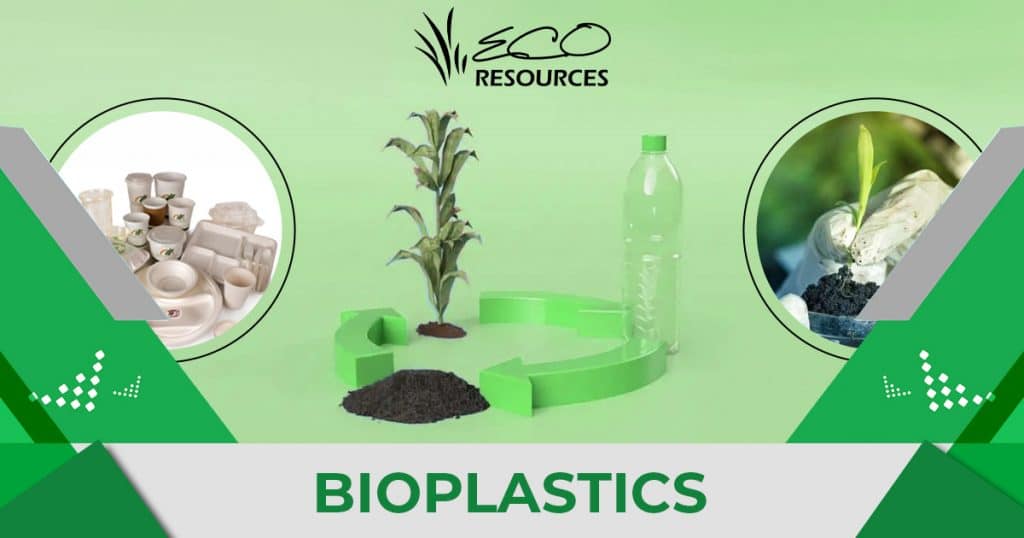

In an era where plastic pollution threatens our oceans and environment, the search for sustainable alternatives has never been more crucial. Bioplastics have emerged as a potential saviour, promising a greener future. But what exactly is bioplastic? And can it truly replace conventional plastic?
Bioplastics are unique materials derived primarily from renewable sources like plants. Unlike conventional plastics, which rely on finite fossil fuels, these bio-based plastics have the advantage of being biodegradable. This allows them to break down naturally, offering a more sustainable and environmentally friendly alternative.
Our reliance on fossil fuels is unsustainable. As these resources are depleted, the world is turning to renewable alternatives. Bioplastics represent a shift towards sustainability, driven by global recognition of the need to reduce our carbon footprint and waste.
There’s a common misconception that all plastics degrade harmlessly. In reality, while all plastics degrade, not all are biodegradable.
Biodegradable plastics can return to nature. They can be completely broken down by microorganisms, turning into water, carbon dioxide, and biomass.
Compostable plastics go a step further. They can be broken down in composting environments, leaving no toxic residue. However, for a plastic to be certified compostable, it must meet specific standards, ensuring it’s truly eco-friendly.
The other types of plastic might just break down into smaller, potentially harmful fragments. It’s essential to understand and differentiate these terms to make informed choices.
Bioplastics are a fantastic innovation, offering a more environmentally friendly choice compared to traditional plastics. Let’s see what they are and how they’re used.
In short, bioplastics are not just an alternative; they’re a leap towards a world where our products align with nature, not against it. They’re versatile and eco-friendly.
Bioplastics are emerging as a beacon of hope in our quest for a more sustainable and eco-friendly future. Here’s a look at the numerous benefits they bring to the environment:
Unlike traditional plastics, which rely heavily on non-renewable fossil fuels, bioplastics are derived from renewable resources like plants. This shift reduces our dependency on oil and gas, paving the way for a more sustainable future.
Bioplastics typically have a smaller carbon footprint. As plants grow, they absorb carbon dioxide from the atmosphere. When these plants are used to produce bioplastics, the overall process results in lower net greenhouse gas emissions compared to conventional plastics.
Many bioplastics are designed to be biodegradable. This means they can break down naturally over time, reducing the long-term environmental impact and the burden on landfills.
Bio-based plastics generally have a lower toxicity profile compared to conventional plastics. They often avoid harmful chemicals and additives, making them safer for both the environment and human health.
The demand for bioplastics can promote sustainable agricultural practices. As the market grows, there’s potential for increased research and investment in eco-friendly farming techniques.
The rise of bio-based plastics has spurred innovation. Scientists and companies are continually exploring new sources and methods to produce bioplastics, leading to even more environmentally friendly options in the future.
Bioplastics represent a significant step forward in our journey towards a greener planet. While they’re not without challenges, their numerous environmental benefits make them a promising alternative to traditional plastics. As technology advances and awareness grows, bioplastics are poised to play a pivotal role in shaping a sustainable future.
As the world shifts towards sustainable materials like bioplastics, the role of recycling businesses becomes even more crucial. Understanding and processing bio-based plastics not only aligns with eco-conscious trends but also presents new opportunities for recycling companies like ECO Resources. Our recycling service is adapting to this change and leading the way in sustainable Perth waste management.

Kristy Sumich is the owner and director of Eco Resources, a prominent waste management and recycling service in Western Australia. With deep industry knowledge and hands-on operational experience, Kristy is dedicated to providing sustainable solutions in waste management.
All rights reserved © Eco Resources. Website by Selling Online Made Simple. Sitemap.